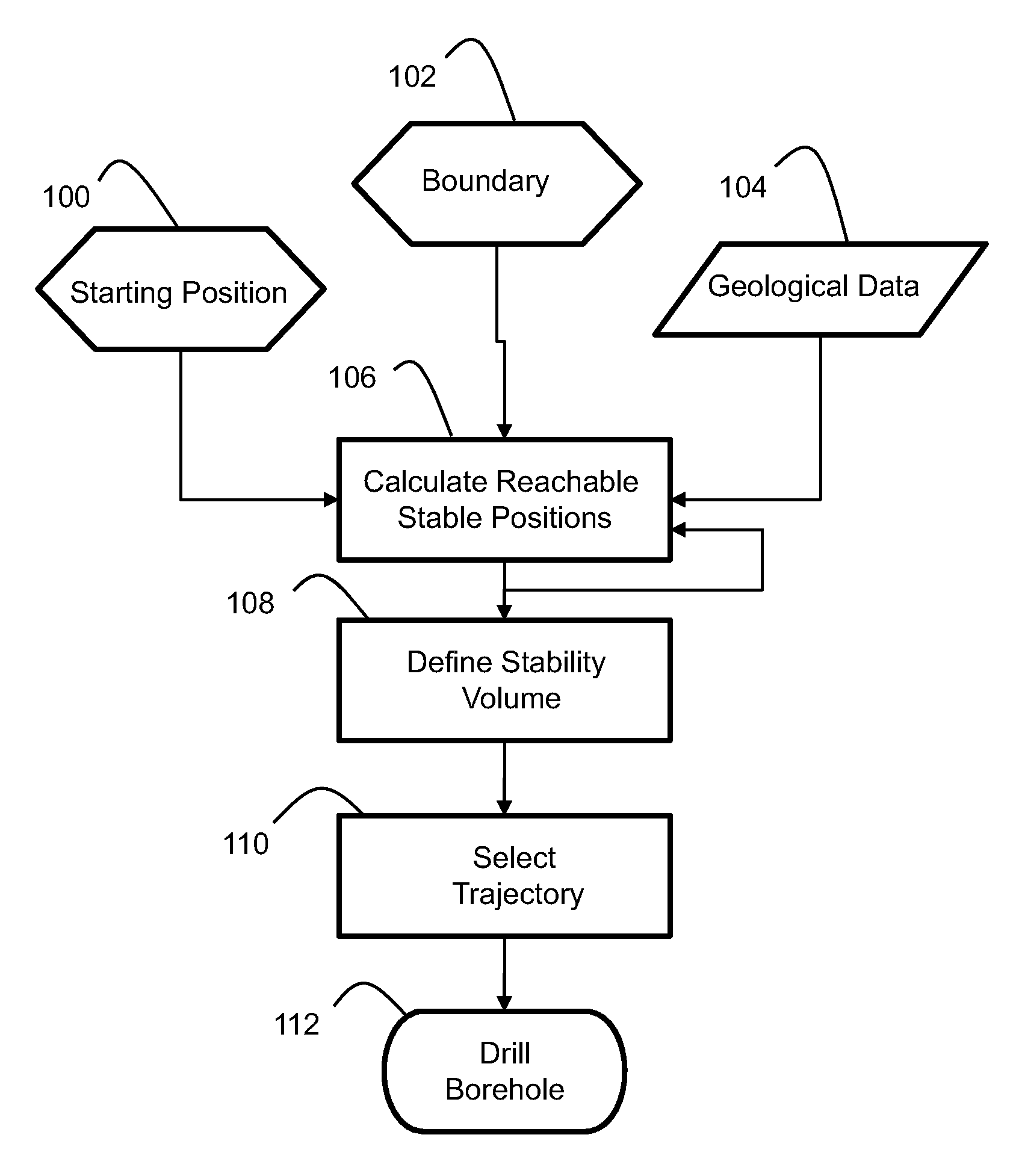Continuous geomechanically stable wellbore trajectories
a geomechanically stable, wellbore technology, applied in the direction of directional drilling, force/torque/work measurement apparatus, instruments, etc., can solve the problems of inability to improve the wellpath solution provided, heuristic and manual determination of the solution, and the process is relatively slow, so as to reduce the time of production and the effect of less prone to errors
- Summary
- Abstract
- Description
- Claims
- Application Information
AI Technical Summary
Benefits of technology
Problems solved by technology
Method used
Image
Examples
Embodiment Construction
[0019]FIG. 1 illustrates general steps of a method for selecting and drilling a borehole having a continuous geomechanically stable trajectory. Some or all of the steps may be implemented by a computer, or with the assistance of a computer. As such, at least some of the steps may be embodied in a computer program product stored on a computer-readable medium.
[0020]Referring now to FIGS. 1 and 2a through 2c, a starting position 100, boundary volume 102 and geological data 104 are provided as initial inputs. Based on those inputs, a stability navigation algorithm is employed to compute a set of reachable stable positions relative to the starting position as indicated by step 106. In particular, the reachable stable positions are constrained by both the boundary volume 102 and a geological model defined by the extent of available geological data, and stability is determined as a function of the geological data. This step 106 may be repeated over multiple iterations by using the reachabl...
PUM
 Login to View More
Login to View More Abstract
Description
Claims
Application Information
 Login to View More
Login to View More - R&D
- Intellectual Property
- Life Sciences
- Materials
- Tech Scout
- Unparalleled Data Quality
- Higher Quality Content
- 60% Fewer Hallucinations
Browse by: Latest US Patents, China's latest patents, Technical Efficacy Thesaurus, Application Domain, Technology Topic, Popular Technical Reports.
© 2025 PatSnap. All rights reserved.Legal|Privacy policy|Modern Slavery Act Transparency Statement|Sitemap|About US| Contact US: help@patsnap.com



